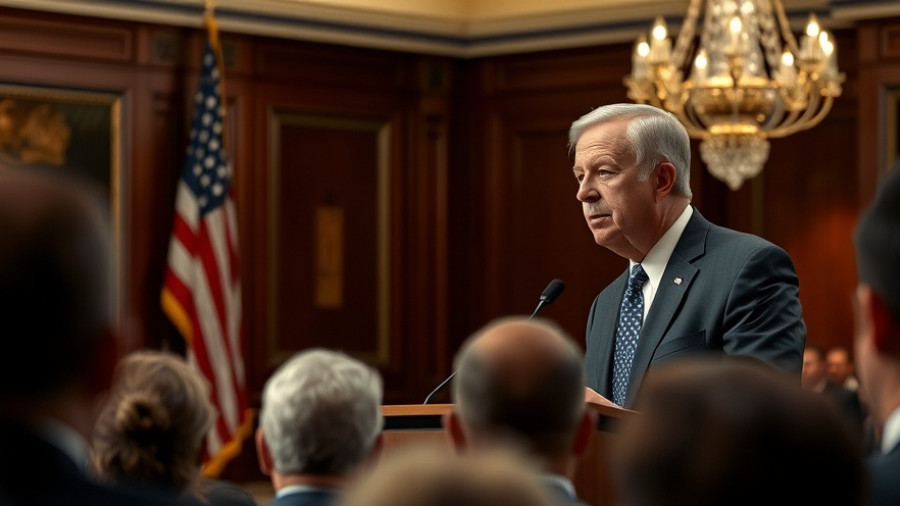
Rising Tensions: Anthropic vs. the Trump Administration
The ongoing discord between Anthropic, a notable player in the artificial intelligence realm, and the Trump administration is intensifying. Recently, David Sacks, the White House’s AI czar, criticized Anthropic co-founder Jack Clark for what he described as "fear-mongering" tactics designed to manipulate regulatory frameworks, sparking a heated exchange between the two parties.
Backdrop of Regulatory Discontent
The conflict roots back to Clark's recent Substack essay that challenged those who underestimate the capabilities of AI, labeling it as more than just a predictable machine. In a swift rebuttal, Sacks argued that Anthropic's statements exemplify a strategy aimed at regulatory capture, which he claims is undermining the startup ecosystem by instigating a "state regulatory frenzy." Critics have noted that while Sacks’s concerns about regulatory capture hold some merit, the scrutiny he directs towards Anthropic may stem from a competitive landscape where tech companies vie for favorable legislation.
Anthropic's Position and Regulatory Efforts
Amidst the criticism, Anthropic has maintained its stance on limiting how its AI can be used, notably refusing requests from federal law enforcement to enable domestic surveillance. This policy decision reflects a conscientious approach to AI deployment, valuing ethical considerations over the potential profits associated with government contracts. It marks a clear divergence from the typical tech industry narrative, emphasizing responsibility alongside innovation.
Implications for AI Regulation
The broader conversations around regulation are paramount, especially as states like California begin implementing robust AI safety laws. Although Sacks has accused Anthropic of being a principal influencer behind these regulatory initiatives, the interplay of various tech companies lobbying for protective measures complicates the understanding of the regulatory landscape. Notably, OpenAI and other firms have similarly engaged in lobbying efforts, suggesting that Anthropic's influence is part of a larger trend rather than a solitary phenomenon.
Future Predictions: A Shifting Regulatory Landscape?
As the debate unfolds, it raises questions about how AI companies can navigate regulatory challenges while fostering a healthy startup ecosystem. With upcoming midterms influencing the dynamic, tech companies are increasingly pouring money into lobbying efforts to secure favorable legislation. This trend is indicative of the growing clout of AI firms, shedding light on the intricate balances that lay ahead. For the startup community, it remains to be seen how these tensions will reshape policies and influence innovation.
A Call for Collaboration
Despite the rising tensions, it's worth noting that both Anthropic and the Trump administration have shown willingness to cooperate in some areas, such as the AI Action Plan and the Pledge to America’s Youth. Moving forward, fostering a collaborative relationship may pave the way for clearer regulations that serve both innovators and the public interest.
As discussions about artificial intelligence continue to proliferate in governmental circles, staying informed on these developments is crucial for stakeholders across the spectrum. Understanding the intricacies of the regulatory landscape will not only inform strategic decisions but will also guide the next phase of AI advancement—balancing innovation with ethical considerations is imperative for sustainable growth in this dynamic sector.
 Add Row
Add Row  Add
Add 




Write A Comment